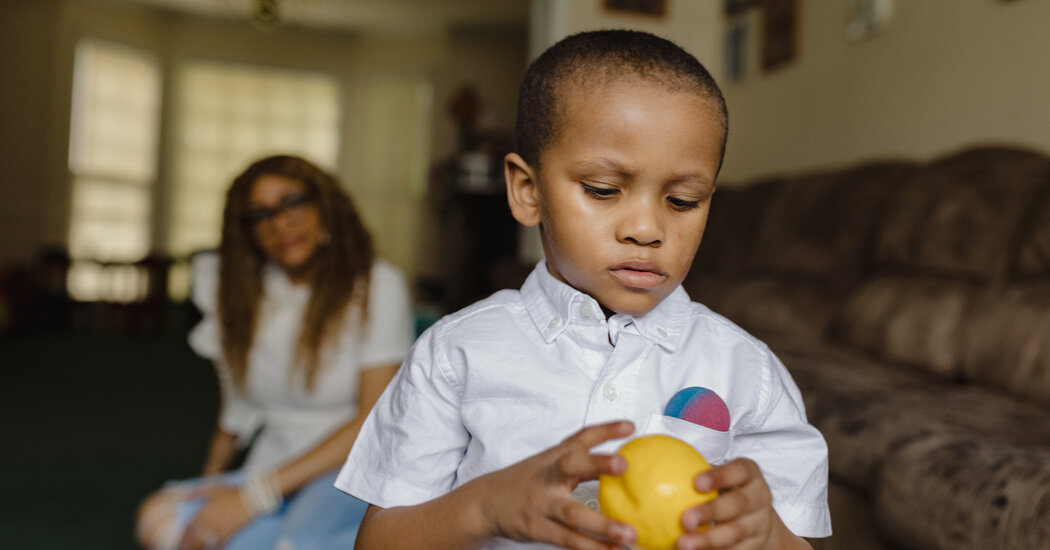Universal screenings for the inherited disease promised to get babies diagnosed and treated sooner. But they still miss some children of color.
By the time Rena Barrow-Wells gave birth to her fourth baby in 2020, she was well-versed in caring for a child with cystic fibrosis. She was also experienced in fighting for a diagnosis of the disease, which runs in families and can severely damage the lungs and digestive system.
Nineteen years earlier, her first son, Jarrod, displayed classic symptoms of cystic fibrosis as a newborn — failure to gain weight; a stubborn, phlegmy cough; and frequent, oily stools. But instead of identifying the cause of her son’s illness, doctors at the New Orleans emergency room where she took Jarrod blamed his poor growth on his mother, who is Black and was a teenager at the time. Ms. Barrow-Wells said that doctors had accused her of starving her son, placed the two of them in a room with video surveillance and reported her to child protective services.
Doctors discharged Jarrod two weeks later without a diagnosis. It would take four years — and dozens of additional visits to doctors and emergency rooms — for Jarrod to be diagnosed with cystic fibrosis. By then, she said, the disease had interfered with his body’s ability to absorb nutrients for so long that he was profoundly malnourished. Children who are diagnosed after they are 2 months old are also at greater risk of serious lung problems and death.
People from minority communities have struggled to receive lifesaving care for cystic fibrosis for decades, in large part because many doctors were traditionally taught that the disease almost exclusively affects white people, said Dr. Jennifer Taylor-Cousar, a professor of medicine and pediatrics at the University of Colorado Anschutz Medical Campus. Several factors have fueled that misconception, she said, including limited testing and scientific research that focused on white patients and failed to identify the full range of affected populations, as well as bias against patients of color, some of whom were blamed for their symptoms, as happened with Ms. Barrow-Wells and Jarrod.
Still, Ms. Barrow-Wells had reason to hope in 2020 that things would be easier for her newborn son, Jahsir. The way cystic fibrosis was diagnosed had changed dramatically since Jarrod was born. Since 2010, all states have screened newborns for the disease, an effort that promised to help all babies with cystic fibrosis receive a diagnosis and treatment in the critical first weeks of life, before the disease causes serious organ damage.
A newborn screening should have quickly confirmed what Ms. Barrow-Wells soon recognized — that Jahsir’s salty skin and foul-smelling diapers were signs that he, too, had cystic fibrosis.
